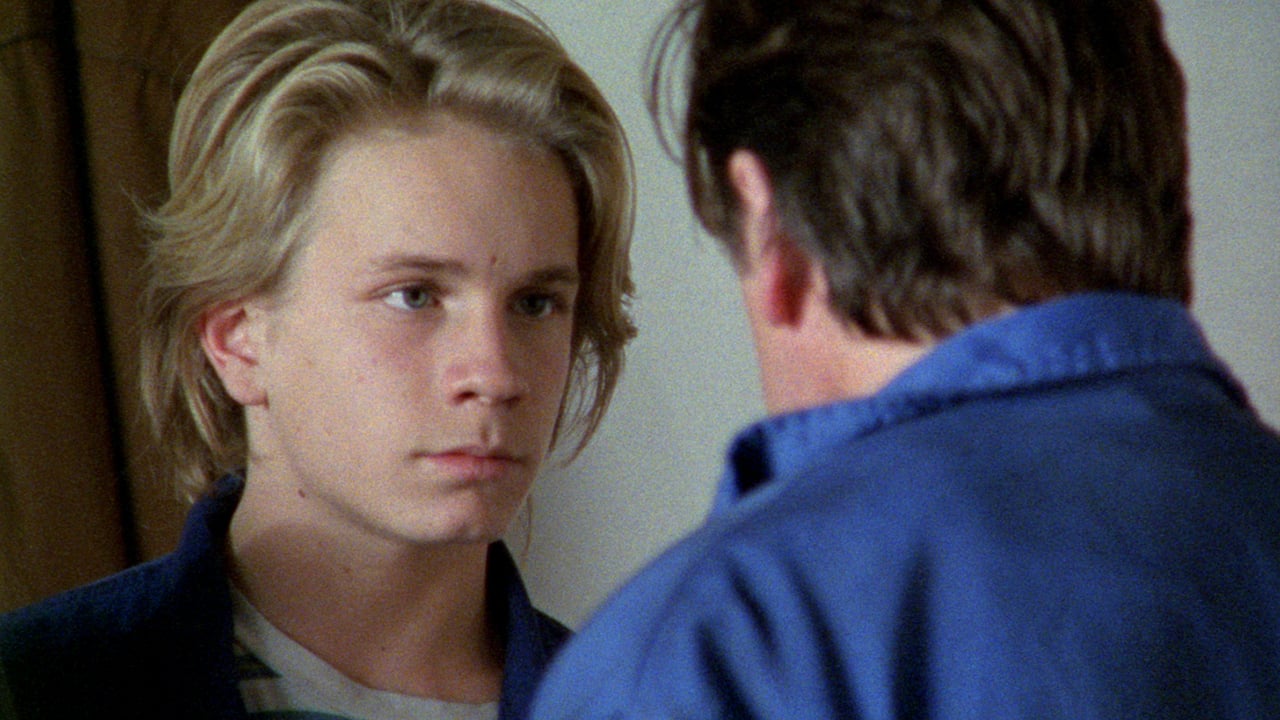NekoHomey
Purely Joyful Movie!
Nicole
I enjoyed watching this film and would recommend other to give it a try , (as I am) but this movie, although enjoyable to watch due to the better than average acting fails to add anything new to its storyline that is all too familiar to these types of movies.
Skyler
Great movie. Not sure what people expected but I found it highly entertaining.
Darin
One of the film's great tricks is that, for a time, you think it will go down a rabbit hole of unrealistic glorification.
Turfseer
Some of you may have seen the Dardennes brothers 2011 film "The Kid with a Bike," which starred Jérémie Renier as the father of a disturbed 12 year old whom he abandons. In the Dardennes brothers first significant (1996) feature, La Promesse, you can see Renier as the troubled 15 year old protagonist, Igor, who shines in his initial foray into the feature film landscape.
Shot in a gritty cinema verité style significantly without music, La Promesse chronicles the unhealthy relationship between Igor and an amoral father, Roger (Oliver Gourmet). Roger proves to be cannily drawn, a bad man who is still fleshed out with some sympathetic characteristics. Despite beating Igor at times, the point is made that he still cares for the boy (in his own half-assed way).
Roger houses immigrants but also exploits them by overcharging for rent and undercharging their pay. When Amidou, an immigrant from Burkina Faso and one of Roger's construction workers, falls off a scaffold, Igor tries to save the man by applying a tourniquet to his bleeding leg. Roger, fearing that he'll be discovered by government inspectors, throws the tourniquet away, allowing the man to bleed to death. To add insult to injury, he dumps the body right at the construction site and covers the corpse with cement. Before Roger arrives on the scene, Igor promises the dying man that he'll take care of his wife, Assita (Assita Ouedraogo) and her infant child.
At the beginning of the film, Igor is introduced as a juvenile delinquent of sorts, who steals money from a woman while working part-time at a service station. The promise turns the boy into a responsible citizen as he ends up trying to help Assita after the husband's disappearance.
The uncaring Roger even goes so far as paying a man to scare Assita into leaving by attempting to rape her (the subterfuge involves Roger pretending to scare the man off before he actually commits the crime). It gets worse when Roger creates a fake telegram which is delivered to Assita, falsely claiming Amidou is in Germany and wants her to meet him there. Only Igor's last minute intervention prevents Roger from delivering the beleaguered widow into the hands of sex traffickers.
Assita is effectively drawn as she's not a complete goody two-shoes. There is a disturbing scene of animal sacrifice (a rooster is sliced up as part of her rituals) and later she has a breakdown, accusing Igor of infecting her child with some sort of disease. Fortunately Assita comes to her senses and they bring the child to a hospital for treatment. There, a sympathetic nurse allows Assita to use her identity papers so she can leave the country to live with a family member.
There is a harrowing scene at the climax where Roger catches up to Igor at the service station where he used to work, with the boy preventing the father from chasing after them by clamping a chain to his leg.
All of this is pretty gripping but a bit predictable in the end as Igor is committed to helping the woman. Igor's confession is indeed satisfying but the Dardennes brothers abruptly break things off and keep us guessing as to what the consequences are of Assita finding out her husband is dead. Does she go to the police? Does Roger prevent her from acting or pay her off? Does Assita finally turn around and indeed move in with a family members in another country? What does Roger do to Igor? The Dardennes brothers wish to leave things to our imagination-not sure that is the best tack to take here as the story sort of demands more of a conclusive denouement.
La Promesse is indeed a gritty portrait of a disturbed father-son relationship as well as a damning chronicle of the exploitation of immigrants by unscrupulous men whose desire for monetary profit outweighs any humanitarian concerns.
jm10701
I was loving this movie until about halfway through, when Assita told Igor that the sheep she'd bought wasn't to provide milk for her baby but for "the Festival of Sacrifice". That's when I hit STOP and ditched the DVD.I'm supposed to sympathize with this "young widow" (as the synopsis describes her), when she bought a sweet, gentle creature just so she can kill it to satisfy some demonic bloodthirsty "god", or whatever? I assume that's what the chicken is for, too. Why did those people even bother sneaking into Belgium if they intended to bring their barbaric customs with them? Why didn't they just stay in Africa?Since the movie hinges on Igor's sympathy for her, there's no point in my waiting around to see if they actually show the slaughter, because I already couldn't care less what happens to that woman. I liked some of the Dardennes' later movies a lot, but if I'd seen this one first I never would have bothered with the others.I know every single person who reads this review will mark it "Not useful", with a warm surge of righteous artistic indignation (and even more righteous anti-American indignation when they see where I'm writing from) as they click the No button.Good for you. You're a great champion of free artistic expression and the rights of the world's downtrodden masses - as long as the views being expressed agree with yours and the downtrodden masses are human beings and not innocent defenseless animals. Your world loves you, but I don't have to.
Graham Greene
Brothers Jean-Pierre and Luc Dardenne concern themselves with creating films that put realism on the screen without using artifice or cinematic trickery to distract the audience from the socially aware message at the core of their narratives. Unlike the similarly themed dogme movement, or the more iconic works of Lars von Trier etc, the Dardenne brothers are unconcerned with changing the face of cinematic reality, but rather, take their cue from people like Ken Loach, Bruno Dumont and Robert Bresson; by creating honest, often-bleak works of film that take their character from despair, to hope, and sometimes, right back to despair, in order to give the audience a taste of a world away from the more comfortable social milieu we might be accustomed to. The concept could be read as hypocritical admittedly, and although the occasional heavy-handed quality of the brother's work does intermittently become preachy, there is ample opportunity to deliver some moments of earth-shattering drama.I first encountered the Dardenne's work back in 2001, when British film channel Film Four premiered their film The Promise (1996) in preparation for the premier of their highly acclaimed follow up film Rosetta (1999). Both films are here are heavily indebted to the naturalistic/realist work of Bresson and Loach, particularly films like Diary of a Country Priest (1951), Riff Raff (1990) and Raining Stones (1993); with the filmmakers presenting the viewer with a series of characters continually forced to the brink of despair, but desperate to pull themselves back. For me, out of the two films of theirs that I have thus far seen, The Promise is the one that makes the greatest impact. Here, The Dardenne's create a world that isn't a million miles away from the current social climate in the UK, with building sites, smoky pubs and migrant workers peppering what is essentially the typical rites-of-passage/coming of age movie so familiar even by Hollywood standards. The brothers rest their narrative firmly on the shoulders of young newcomer Jérémie Rénier as Igor, a teenage tearaway forced into looking after a young black mother and her baby following the death of the woman's husband whilst working for the company run by Igor's father.The brothers season their film with an abundance of topical, moralistic issues such as the passage into adulthood, immigration and domestic abuse, but at the centre of the drama there is still room for hope in the touching father son relationship between Igor and his disparate dad (played here by award winning actor and regular Dardenne collaborator Olivier Gourmet). The Promise might not be a ground-breaking film; its ideas are well worn and its scenarios familiar from the classic kitchen-sink cinema of films like Saturday Night and Sunday Morning (1960) and A Taste of Honey (1961) to name only two, but the process of refinement that the brothers are able to create with the subtle shading of characters and the no-nonsense approach to film-making is really quite affecting on the most personal and emotional of levels.
jandesimpson
The first ten minutes were not exactly promising! I remember thinking, another hand-held camera job, this time set in the backstreets of a Belgian industrial city - yet another rite of passage tale - unprepossessing youth steals a pensioner's handbag from a car in the garage where he works, while his father, a squint-eyed, piggy-faced fatty, runs a racket fleecing illegal immigrants from the Balkans and Africa. However what is wholly remarkable about "La Promesse" is the way it slowly sucks the viewer into a realisation that this is not just a piece of documentary-style realism but an uncompromisingly honest study of character and conscience. Indeed, I would go so far as to say that no other film new to British TV last year moved or excited me as much. The performance by Jeremie Renier as the youth Igor is a tour-de-force. He is on screen for practically the entire film and it is his search for integrity after a dying African (one of his father's "clients") exacts from him a promise to assist his wife and baby, that forms the work's core. Igor has to come to terms with alienating his father, who, although a selfish and dishonest brute, has real affection for his son; parental/filial warmth is displayed when they drunkenly sing together in a cafe. But what the film finally says with such devestating certainly is that even integrity is something that can go unappreciated and ignored by the one towards whom it is intended. The ending speaks of a terrible price paid for redemption.

